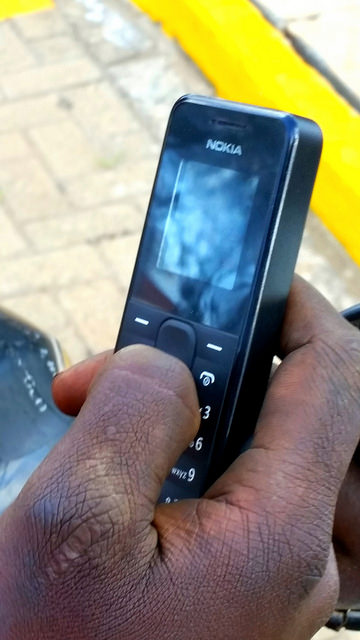 While a tiny percentage of Ebola cases are popping up in the United States and Europe, the epicenter of the disease is and remains in West Africa, an area where mobile health initiatives are often deployed, especially those that take advantage of text messaging and other short message services. Texting is a good way to educate a large swath of the population so they can identify symptoms of the disease early, seek medical care, and avoid contaminating others.
While a tiny percentage of Ebola cases are popping up in the United States and Europe, the epicenter of the disease is and remains in West Africa, an area where mobile health initiatives are often deployed, especially those that take advantage of text messaging and other short message services. Texting is a good way to educate a large swath of the population so they can identify symptoms of the disease early, seek medical care, and avoid contaminating others.
Already, the latest Ebola crisis has seen efforts from IBM, the Red Cross, UNICEF, the UN World Food program, and the BBC, all using texting or mobile messaging to help contain the spread of the disease. Here's a round-up of the texting-related efforts in West Africa today.
TERA
The International Federation of Red Cross and Red Crescent Societies (the international organization of which the American Red Cross is a part) has teamed up with mobile operator AirTel to offer TERA, the Trilogy Emergency Relief Application system, which according to an NPR report, has sent out about 2 million text messages per month in Sierra Leone. The text messages are delivered for free to every phone in the region and contain messages about washing hands, avoiding physical contact, and seeking early treatment for any symptoms. The same system was used previously in Haiti following the earthquakes.
NPR reports that 69 percent of Sierra Leone residents have a cellphone. And the messages can reach even more people, as people can share the information with friends or even with a town crier who can disperse the information through a village.
UNICEF's U-Report
In Nigeria, UNICEF has launched U-Report, a texting service that conveys information about Ebola safety and preparedness by taking advantage of existing social connections. UNICEF signs people up to be U-Reporters, and to receive information and safety tips via text message. Then, that person can text their friends and family with the messages, and even encourage them to subscribe. UNICEF reports on its website that when there's an information vacuum, misinformation tends to spread in the form of home remedies that supposedly cure or prevent Ebola. These placebos, if not replaced with better information, can actually promote the spread of disease by making people think they're cured while they're still contagious.
IBM's texting initiative
While TERA and U-Report enable relief organizations to text people, IBM is working on an initiative in Sierra Leone that uses SMS to let people contact the government. IBM uses supercomputing and the cloud to parse and map out the content of messages, effectively crowdsourcing data about the nature of the outbreak. People are encouraged to call or text a toll-free number by radio broadcasts.
"For example, it has already brought to light specific regions with growing numbers of suspected Ebola cases which require urgent supplies like soap and electricity, as well as faster response times for body collection and burials," IBM wrote on its website. "The system has also highlighted issues with the diagnosis of Ebola empowering the government to approach the international community to request more testing facilities and equipment."
Future iterations of the platform might include using mobile phone tracking data to analyze the spread of the disease.
The UN World Food Program
Similar to IBM's program, the UN World Food Program is also using texting to gather information about where the need is greatest -- in this case, places where the outbreak has affected infrastructure and limited the population's access to food. According to The Atlantic, the organization is working with Denver-based Mobile Accord, which offers a text-based survey platform called GeoPoll. Phone-based surveys keep researchers safe from risk of exposure and allow researchers to more easily contact the same people multiple times to pick up on trends.
The BBC's WhatsApp service
WhatsApp is the biggest chat app in Africa, and the BBC is including it in a variety of channels its using to get the latest Ebola news, as well as public health information, out to people. The intervention also includes Twitter, Facebook, television, radio, and the web. WhatsApp messages will be sent out three times a day in English and French to opt-in subscribers.













